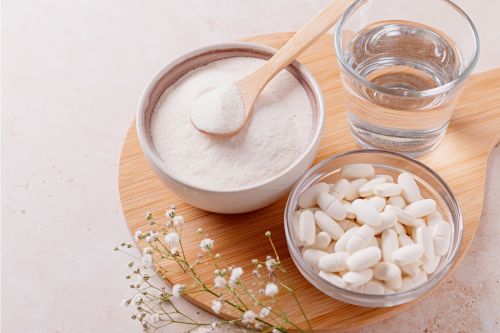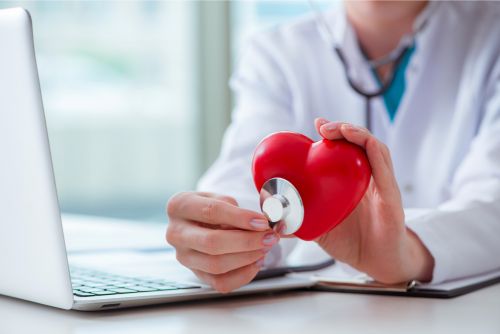6 Min Read
Top 10 Tips to Optimize Digestion

In Naturopathic practice, one of the most common questions patients get asked is “Do you experience any digestive issues”? Interestingly enough, many will say “no issues at all!” But, it becomes apparent that this is actually not the case. Most people become so accustomed to abdominal discomfort that it becomes a “normal” part of their daily life. But, constant feelings of bloating, gas, upset stomach, increased/decreased bowel movements are not normal! If you are experiencing these signs of poor digestive health you may just need a reminder of some practices that can help dramatically improve digestion!
The digestive tract is responsible for absorbing nutrients from the food we consume on a daily basis. These nutrients are then used by the whole body for fuel and to carry out its daily functions (Ex. energy, hormone/neurotransmitter production, detoxification, muscle building). However, as important as nutrition and eating the right foods are, if the digestive tract is not working optimally, these nutrients are not able to be absorbed.
Suboptimal digestion can lead to symptoms like, bloating gas, diarrhea, heartburn, nausea and an upset stomach. Everyone experiences occasional digestive symptoms, but when these symptoms become persistent it could be an indication that the digestive system may not be functioning at its best.
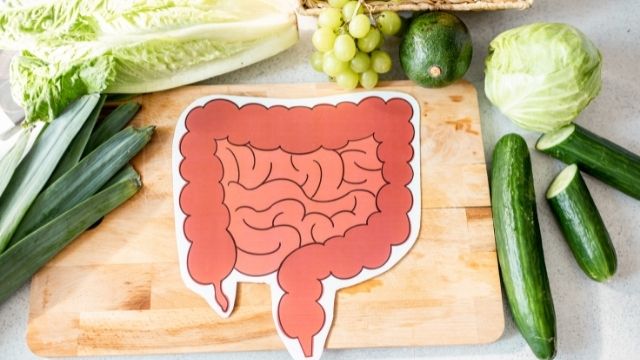
Top 10 Tips For Better Digestion
1. Incorporate Active Breathing Before Meals
Prior to eating take 3 deep breaths in through your nose and out through your mouth. This seemingly simple practice of focusing on your breathing takes less than 2 minutes and will help calm your mind before a meal.
Why this works:
- The Nervous System is most important in regulating digestion. It is comprised of two branches: Sympathetic and Parasympathetic.
- The Sympathetic Nervous System is involved with the ‘fight-or-flight’ response, which diverts blood flow into the extremities and away from the digestive tract.
- The Parasympathetic Nervous System is involved in ‘rest and digest’ which counteracts this effect and diverts blood flow to the digestive tract which slows the heart rate and increases intestinal activity. Digestion is stimulated by the Parasympathetic system and inhibited by the Sympathetic system.
- Since we are always on the go, whether it be errands, deadlines, and appointments we are constantly in the Sympathetic state, which is why focused breathing can be so beneficial.


2. Eat In a Stress-Free Environment
Create a stress-free environment for your mealtimes by turning off all electronic stimuli (computers, cell phones and TV), dim lighting and really take your time to enjoy the meal and connect with those around you. Make sure to sit while you eat your meals and do not eat on the go!
Stress can negatively affect the gut by:
-
Decreasing blood flow to the gut
-
Reducing stomach acid/enzymes that help break down food. Changes in stomach acid and decreased enzymes can put you at a higher risk for developing GI issues like, leaky gut, IBS, SIBO and H. Pylori infection
-
Shutting down digestion through increasing cortisol
3. Maximize Your Senses & Engage In Mindful Eating
Engage in mindful eating. Look at your food, notice the colours and most importantly smell the food. This is why cooking your own food can be super beneficial as it helps to stimulate digestive juices to flow prior to even chewing.
Many people think that digestion starts at the stomach, but in reality the first phase of digestion begins when you see, smell or even think about food. This is what kick starts the production of digestive enzymes.
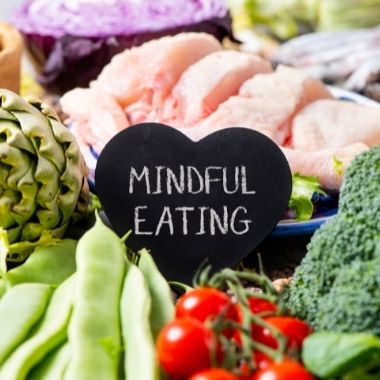

4. Chew More
Aim to chew at least 20-30 times per bite before swallowing. Adequately chewing your food is crucial for optimal digestion. After your body senses food, the next phase starts in the mouth for mechanical digestion. Chewing helps to break up the food into smaller pieces and allows it to mix with saliva, which stimulates digestive enzymes. This will help optimally digest food, maximize nutrient absorption and helps to eradicate bloating after meals.
5. Put Your Utensil Down Between Bites
Put your utensil down between bites. This forces you to slow down while eating your meal. During a meal, the stomach sends signals to the brain letting it know how full it is. Your body will then release the hormone, leptin in response to being full. This signal takes about 10-15 minutes to actually reach the brain. This is the reason that people tend to overeat. Eating slowly will allow for this 10-15 minute window to occur and it gives time for the brain to receive the signal of being full.


6. Be Cognizant of The Types of Food You Choose To Eat
Eating processed and fast foods several times a week will not result in optimal digestion. If you have issues like, indigestion, gas, bloating, etc. take a good look at the types and quality of food you are eating.
It is helpful to keep a diet diary for 1-2 weeks while also recording how you feel after each meal and at the end of each day. This can help to create a map of foods that you may not be digesting very well and would indicate a possible food sensitivity. You can then replace irritating substances in your diet with healthier versions. While this step might seem like a daunting task, I assure you that this is one of the best ways to truly pinpoint the root of your digestive concerns.
Here are some questions to consider when keeping a diet diary:
- What kinds of food are you eating?
- How are your bowel movements? Are they painful?
- How many times a day are you having bowel movements?
- Are you experiencing undigested food in the stools?
- Do you experience any symptoms after eating certain foods? Are you bloated or gassy after these foods?
7. Start Every Meal With Some Bitter Foods
Eating bitter foods like, arugula, kale, mustard greens, dandelion greens and cabbage can help to prime the digestive tract so it starts to release enzymes which can help digest foods.

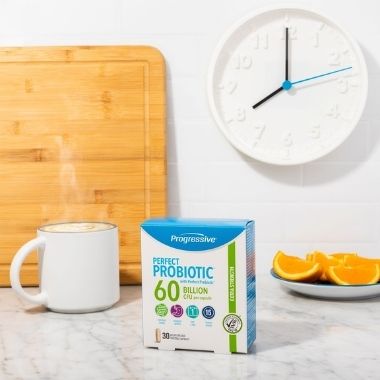
8. Take a Probiotic Daily
Take a probiotic daily with food. Aim for 10,000-25,000 CFU for daily maintenance. Probiotics are tiny microorganisms that help to restore normal microflora in the gut and make sure the body has more of the good bacteria. They can help to displace the gas-producing bacteria with more beneficial bacteria.
9. Digestive Teas
Drink a digestive tea that contains carminatives. Carminatives are herbs that aid in digestion to help relieve flatulence and gas in the digestive system. Try chamomile, peppermint, ginger or fennel tea.
Make sure to wait 30-45 minutes after a meal, so as to not dilute the digestive enzymes that are hard at work post meal!


10. Extra Digestive Support
If the above suggestions are just not working for you the body may need some extra digestive support. Digestive enzymes promote healthy digestion and can be helpful for anyone who has an enzyme deficiency or food sensitivities.
Try the following digestive aids that may help to further optimize digestive function:
- Apple cider vinegar – 1 tsp of apple cider vinegar in half a glass of water 30 minutes before a meal can help to increase stomach acid and help to prime digestion
-
Digestive enzymes – Enzymes are naturally produced by the body and help to break food into smaller pieces. These enzymes are present in saliva, intestines, pancreas and intestinal microflora where they help to break down carbohydrates, proteins and fats. Different types of enzymes perform different digestive duties: Protease enzymes break proteins into smaller units so they can be absorbed by the body (ex. Gluten and Casein)
- Lipase is an enzyme that helps to digest dietary fats and oils into absorbable forms
- Amylase is an enzyme that helps to convert starches, glycogen and other carbohydrates into simple sugars that the body can absorb (ex. Breads and pasta).
-
Lactase is an enzyme that converts lactose into absorbable sugars
*Be sure not to abuse these as your body will start relying on them.
That feeling of heartburn, being constipated, or worst of all that bloated feeling 24/7 really has the ability to negatively impact your everyday life. But, rest assured these feelings are not normal! You may be participating in some activities unknowingly that can be hindering optimal digestion, leading to these unwanted symptoms of poor digestive function. Try some of the tips provided in the article to really digest the food you eat and eliminate all of those uncomfortable feelings!
Written By: Dr. Saira Kassam | 2017
**Disclaimer**
The advice in this article is for informational purposes only. It does not replace the care of a Naturopathic physician.
